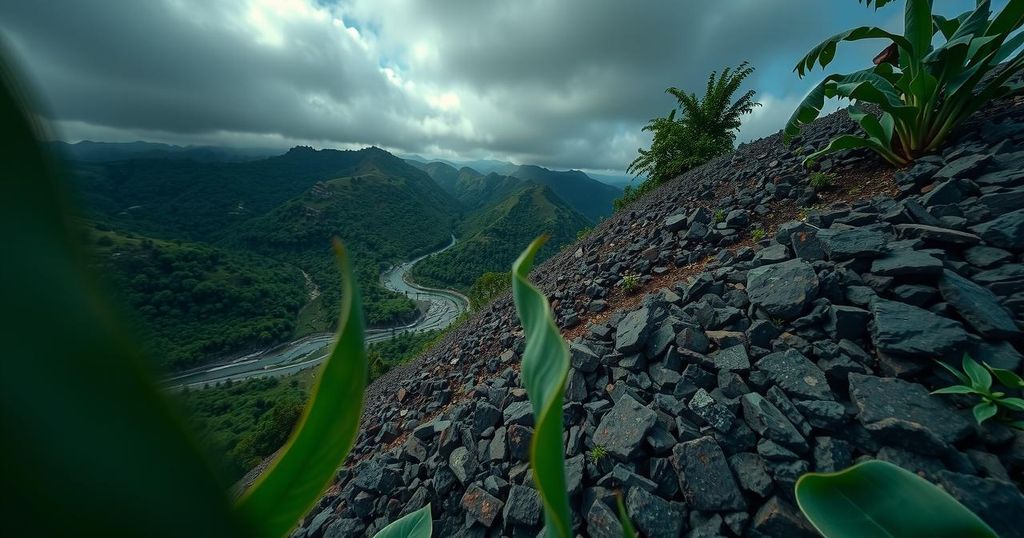Complexities Surrounding UN Peacekeepers’ Withdrawal from DR Congo
The DRC seeks the withdrawal of UN peacekeepers from its eastern region due to rising local frustrations, despite fears of increased violence from armed groups post-withdrawal. Tensions rise with the presence of Rwandan-backed M23 rebels, complicating efforts for stability amid global interest in the region’s mineral wealth. The departure of MONUSCO could leave millions of displaced civilians vulnerable, highlighting a precarious security landscape.
The Democratic Republic of the Congo (DRC) is advocating for the withdrawal of the United Nations peacekeeping force, MONUSCO, from its mineral-rich eastern region, which has been plagued by conflict. The government seeks stability amidst increasing violence from various armed groups, including one affiliated with the Islamic State. Despite local frustrations with MONUSCO’s perceived ineffectiveness, many Congolese citizens fear that their departure would leave a dangerous security vacuum. The involvement of foreign-backed militias, particularly the M23 supported by Rwanda, complicates the situation further as they seek control over valuable mineral resources. More than 80% of the country’s seven million displaced people currently reside in areas protected by UN forces, amplifying concerns about their potential removal. Although a recent truce has temporarily reduced hostilities, fierce clashes persist, reflecting the ongoing complexities of this protracted conflict.
Reports indicate that minerals from the DRC, particularly cobalt and tantalum, are of significant global interest, thereby magnifying the violent struggle for control in the region. Local military and foreign mercenaries operate within the chaotic landscape, raising questions about the effectiveness of any single actor as various factions pursue diverging agendas. This situation is exacerbated by Rwanda’s alleged complicity in the illicit trade of DRC minerals, which, according to analysts, has drawn tacit acceptance from the international community due to its economic ties with the West.
The situation in the eastern Democratic Republic of the Congo is deeply rooted in its rich mineral deposits, attracting both international attention and conflict. The region has seen active military engagement from both local groups and foreign actors, notably Rwanda, which backs the M23 rebel group. Despite the presence of MONUSCO, a robust UN peacekeeping force established to stabilize the area, widespread discontent has emerged among the Congolese populace regarding its effectiveness. The escalating tension and violence surrounding mineral extraction continue to undermine potential peace-building efforts, with numerous armed factions vying for dominance.
The request for a withdrawal of MONUSCO from the DRC illustrates the complex interplay between local desires for sovereignty and the harsh realities of ongoing violence and instability. With conflicts over valuable mineral resources likely to continue, the prospect of a secure and peaceful environment remains in jeopardy. The international community must carefully assess the implications of such a withdrawal, as it could significantly exacerbate the already dire humanitarian situation in the region. Developing a comprehensive strategy to manage the transition away from UN protection is paramount to safeguarding the millions currently dependent on its presence for security.
Original Source: www.voanews.com




Post Comment